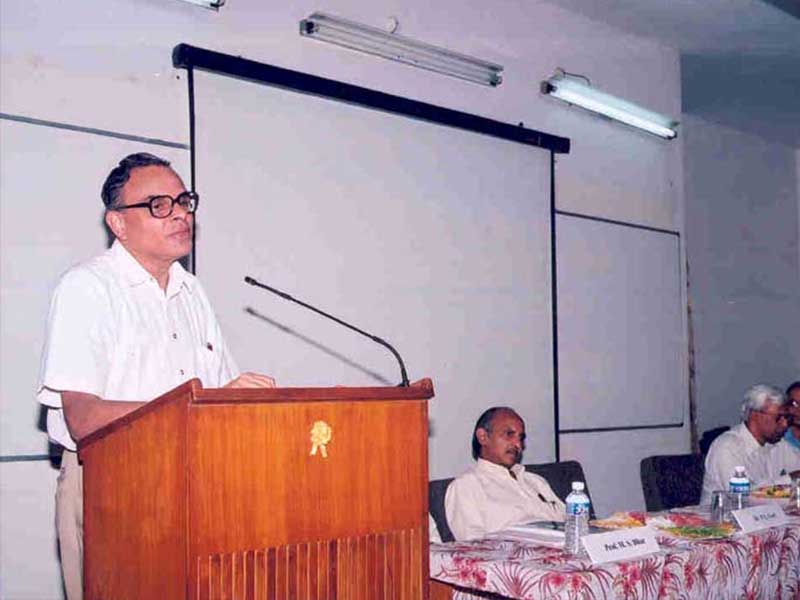Under the auspices of Astronautical Society of India, a three day workshop titled 'Workshop on Space Instrumentation and Payload Engineering' was conducted at the ISRO-IISc space technology cell, Indian Institute of Science, Bangalore from 22May to 24th May 2003.
The main aim of the workshop is to expose and educate the scientific community and academicians the hitherto not available possibilities of conducting scientific experiments in space and their unique characteristics and advantages, especially for non-space science community.
About 50 participants were selected for the program from those who responded to the ASI announcement during February 2003. About 40 persons attended the workshop.
The program was inaugurated by Professor M.Vijayan, Associate Director, IISc and Dr. P.S. Goel, Director, ISAC delivered the keynote address. He elaborated the challenges involved in space science payloads. He envisaged that more and more science missions will be realized in future in our national space program with active participation from non space organizations/institutions.
Seven experts from different organizations gave presentation on various space experiments and associated instrumentation in the areas of astronomy, material science, fluid mechanics, remote sensing, biological science etc.
The second part of the workshop dealt the engineering aspects in realizing the payloads. Eleven experts from ISRO Satellite Center presented the basics and fundamentals of space engineering from the view point of different disciplines.
A comprehensive coverage of the different topics in the form of proceedings edited by Dr.K.Badari Narayana and V.A.Thomas was provided to the participants. The participants got an opportunity to visit ISRO Satellite Center at air port road, Bangalore for getting a first hand exposure to the manufacturing, assembly and testing of space hardware and satellite work in progress at this centre. Participants were also briefed with ISRO programs and joint venture opportunities and modalities.
Finally, a dialogue between the participants and ISRO and ISRO- IISc Technology Cell members was arranged to get a feedback about the program. All the members appreciated the comprehensive program and felt that it was very useful in getting an overall impression of technology involved in conducting space experiments. A few members showed keen interest in proposing experiments as possible future payloads. Both ISRO and ISRO-IISc Technology Cell assured the appropriate help and guidance required.
ASI looks forward to more such programs to promote astronautics in the country and build new bridges with scientific community in the country.
